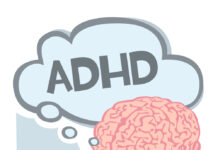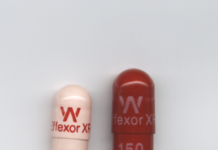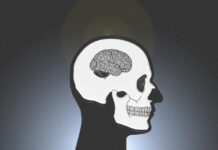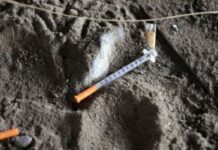Psychiatry Defends Its Antipsychotics: A Case Study of Institutional Corruption
Jeffrey LIeberman and colleagues have published a paper in the American Journal of Psychiatry stating that there is no evidence that psychiatric drugs cause long-term harm, and that the evidence shows that these drugs provide a great benefit to patients. A close examination of their review reveals that it is a classic example of institutional corruption, which was meant to protect guild interests.
Chris Cornell’s Wife Blames Anxiety Medicine for Suicide
From Rolling Stone: On Thursday morning, singer Chris Cornell died by suicide. His wife recently issued a statement speculating that his suicide may have been...
Physical Inactivity Associated with Worse Cognitive Functioning in Psychosis
Higher levels of sedentary behavior are associated with poorer cognitive functioning in patients diagnosed with schizophrenia.
Music Therapy Interventions Reduce Depression Symptoms in Dementia
Therapists can use music to meet the emotional and social needs of individuals with dementia.
PTSD, Psychotropic Medication Increase Dementia Risk
From Healio: Researchers recently found that veterans diagnosed with PTSD and prescribed antidepressants or atypical antipsychotics are at a higher risk for dementia than veterans...
Restricting Pharma Reps Contact with Docs Decreases Prescriptions
Implementing policies that regulate pharmaceutical sales representatives’ interaction with physicians may reduce prescription of promoted drugs.
We Need Ecstasy and Cocaine in Place of Prozac and Xanax
From Aeon: While psychiatric drugs are often ineffective and can have serious side effects, there are many psychedelics and other illicit substances that have proven...
Psychology vs. Psychiatry – What Can Happen if the System Fails
From Vox Gibraltar: Many people confuse psychology with psychiatry. Too often, general practitioners recommend psychiatric treatment when psychological treatment or therapy could be just as effective without resulting...
Lancet Psychiatry’s Controversial ADHD Study: Errors, Criticism, and Responses
Amid calls for a retraction, Lancet Psychiatry publishes articles criticizing the original finding and a response from the authors.
Psychiatric Medications Heighten Risk for Major Bone Fractures
Important assessment tool found to underestimate the risk for fracture in patients on psychiatric medication.
Trump’s Pick to Run Mental Health
From STAT: President Trump has nominated Dr. Elinore McCance-Katz, a proponent of increased psychiatric treatment for those diagnosed with serious mental illness, to run the Substance...
Informed Consent for Benzodiazepines: A Personal Account
I began to have transient moments where I would feel oddly disconnected from my environment or wake up and feel like I was coming out of my skin. I did not know it at the time, but I was experiencing interdose benzodiazepine withdrawal and it would end up leading me down a path of polypharmacy.
The Truth About Long-Term Antidepressant Use
From The Guardian: As antidepressant prescriptions rise and have doubled in the past decade, mental health experts are becoming increasingly concerned about adverse effects and...
Researchers Search for Subgroups Where Antidepressants Are More Effective
The researchers theorized that this increased effectiveness was due not to “antidepressant” properties, but rather to the drug’s side effects, which include insomnia, drowsiness, and nausea.
Inconvenient Truths About Antipsychotics: A Response to Goff et al
The most worrying thing about the Goff et al paper is the minimisation of the evidence that antipsychotics produce brain shrinkage. There are no studies that show progressive brain changes in people diagnosed with schizophrenia or psychosis in the absence of antipsychotic treatment.
Mental Health Awareness Month: Seven Things to be Aware of
In this piece for Truthout, Noel Hunter lists seven facts it is important to be cognizant of during Mental Health Awareness Month, from the influence...
Stop Chasing the Drug, Focus on ACEs
From ACEs Connection: According to Dr. Daniel Sumrok, director of the Center for Addiction Sciences at the University of Tennessee, addiction is a normal response to...
Parents Tinker With Diet to Treat ADHD
From STAT: Concerned about the potential adverse effects of ADHD medications, some parents are addressing their children's ADHD through nutrition-based approaches.
Article →
Dear Scott Gottlieb: Add New Warnings to Paxil Labels
From STAT: Scott Gottlieb, Trump's pick to lead the FDA, should consider pursuing a stronger warning label for the antidepressant Paxil. Paxil's label currently does...
Staggering Levels of Health Spending in U.S.
From the Center for Health Journalism: In 2015, the U.S. spent a staggering $3.2 trillion on health care. This budget is often spent ineffectively; our spending...
13 Reasons to Watch 13 Reasons Why
From Acting NT: Many mental health advocates have objected to the Netflix series 13 Reasons Why, which centers around the suicide of a teenage girl. Here...
Training Nursing Home Staff in Understanding Needs Can Reduce Antipsychotic Use
A new study published in JAMA Internal Medicine, the largest study of its kind, has shown it is possible to reduce the use of antipsychotics in nursing homes, by engaging their staff in a training program designed to target residents’ strengths and their unmet needs.
The Link Between Opioids and Unemployment
From The Atlantic: A recent study found that increases in unemployment rates are associated with increased opioid overdoses and emergency room visits.
Article →
Anticonvulsant Implicated in Birth Defects in up to 4,100 Children, French Study Finds
Between 2,150 and 4,100 children suffered from severe malformations connected to valproate prescription.
Autism’s Drug Problem
From Scientific American: Many autistic children are prescribed multiple psychiatric medications, which can lead to serious adverse effects and are often ineffective.
"Multiple diagnoses lead to...

































